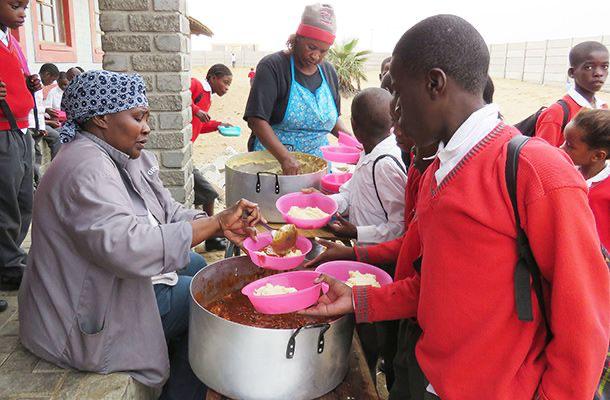The Ministry of Education, Arts and Culture has cautioned that prolonged legal battles about school hostel catering tenders may result in food shortages at hostels across the country.
According to the education ministry’s deputy executive director, Knox Imbuwa, the ministry has faced continuous legal challenges that have delayed the food procurement process, leaving many hostels at risk.
In an interview on The Namibian’s Desert Radio on Tuesday, Imbuwa said the tendering process, which initially began under the Central Procurement Board of Namibia (CPBN), has been stalled by repeated court and review panel interventions.
“The procurement process started in July 2024, but was delayed due to legal challenges. The High Court ruled that the process must start afresh. Meanwhile, we have been operating on contract extensions for service providers, some of whom have been in place since 2009,” Imbuwa said.
He added that an emergency six-month procurement arrangement was approved by the finance ministry, split into two three-month periods.
The first contract ran until December 2024, while the second ended on 31 March 2025.
Imbuwa added that legal disputes arose when the ministry attempted to award the contract to selected bidders in October last year.
He said the tender review panel dismissed six out of seven complaints, but instructed the ministry to re-evaluate one bidder’s application.
“After we conducted the re-evaluation and reported back to the review panel, we received approval to proceed with awarding the contract. However, the same bidder who lost the case launched another review application,” Imbuwa said.
The dispute escalated, with another supplier taking the matter to the High Court.
Imbuwa said the court dismissed the case, but a subsequent decision by the review panel on 4 February led to the cancellation of the entire procurement process.
He disputed claims that the ministry defied the review panel’s orders.
“The award was made after we fully implemented the review panel’s initial ruling. The new cancellation ruling came after contracts were already signed,” he said.
Imbuwa said hostel food supplies would last at least until the end of the week.
“We maintain stock levels sufficient for one to two weeks. For now, there is enough food until the end of this week, and some hostels may have supplies until Tuesday next week,” he said.
He added that the ministry is in discussions with the finance ministry to explore emergency procurement measures to prevent disruption to pupils’ meals.
Imbuwa acknowledged the challenges caused by the legal disputes, but emphasised that the procurement process is designed to ensure fairness and transparency.
“The law allows bidders to challenge procurement decisions, and while this can cause delays, it is necessary for ensuring fairness,” he said.
To prevent similar disruptions in the future, he said, the CPBN is working on a long-term procurement plan that will secure food supplies for the next three years.
“Until that process is finalised, we need an interim procurement arrangement, but unfortunately, it has been subject to frequent legal challenges,” he said.
Stay informed with The Namibian – your source for credible journalism. Get in-depth reporting and opinions for
only N$85 a month. Invest in journalism, invest in democracy –
Subscribe Now!










